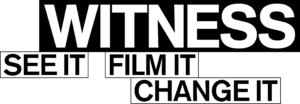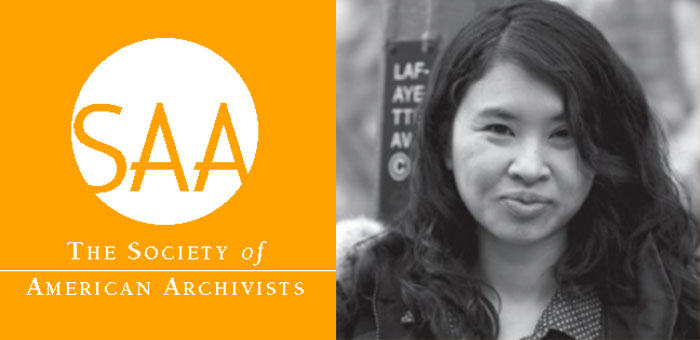An Interview with Yvonne Ng on Archiving for Human Rights
Yvonne, our Senior Archivist, was recently featured as “Someone You Should Know” in the Society of American Archivists May/June issue of Archival Outlook. Her interview with SAA is posted in it’s entirety below or can be found here.
***
Yvonne Ng is the senior archivist at WITNESS, an international nonprofit organization that supports individuals using video to document human rights abuses. She manages the organization’s video collection, which is recorded by partners and staff, and creates training resources to empower activists to archive and preserve their own videos. In 2014, WITNESS received SAA’s Preservation Publication Award for Activists’ Guide to Archiving Video. Read on as Ng shares how she feels archives can promote and protect human rights.
SAA: What drew you to the archives profession?
YN: I have always had an interest in independent and alternative media. In 2005, I worked at the Canadian Filmmakers’ Distribution Centre in Toronto, one of the oldest artist-run centres in Canada, to assess its film print collection. While it was a circulating collection, many of the prints were unique or best copies of important Canadian experimental works. At the time, I had a background in film studies and was just learning film preservation on the job.
I ended up at the Moving Image Archiving and Preservation (MIAP) program at NYU, where I became more acutely aware of the problems of magnetic media and the emerging challenges of digital video. In MIAP, we were taught principles and standards, but also exposed to the realities of both large, slow-moving institutions and small, underresourced nonprofits. My interest was in de facto archives, places where media was being made or collected that did not necessarily have the mission or resources to archive and preserve. This culminated in my thesis, which focused on assessing the readiness of small organizations to start their own archival initiatives.
I think what draws me to the archives profession is actually the need for archival expertise and skills outside of formal archival institutions. It’s here that I feel I can make the most impact.
SAA: What groups have you partnered with to document human rights abuses and advocate for change?
YN: WITNESS has worked with more than 360 organizations over our 23-year history. We have partnered with international human rights organizations like Amnesty International, and national human rights groups like LICADHO, which fights forced evictions and land grabs in Cambodia. We have worked with lawyer-led groups like the Research and Advocacy Unit in Zimbabwe and Our Children’s Trust, which tackles climate change in the United States. We also partner with independent activist media collectives and citizen witness groups documenting systematic abuses in places like Syria and Brazil.
SAA: What role can archives play in protecting and promoting human rights?
YN: We all know on the most basic level that archives and archival records are useful for securing rights and proving abuse. But outside of formal archives, good archival practices also can be advantageously employed by people who are monitoring and documenting human rights in their communities.
Videos by citizen witnesses and activists may contain valuable information and evidence but are particularly vulnerable to loss, tampering, or decontextualization. There are greater security concerns for the individuals and for the footage. People are using available cameras or mobile phones with sometimes unsustainable formats, storing on consumer-grade portable hard drives, or uploading to third-party video sharing sites. Also, activists who film usually do not have time to properly arrange or describe their content, and the more they record, the harder it becomes to find and identify particular videos.
Archivists can support activists who are protecting and promoting human rights by sharing knowledge about basic practices that can help ensure that authentic evidentiary content is properly protected, preserved, and accessible later on.
SAA: What’s one thing you wish everyone knew about archives?
YN: I would want everyone to know that archiving should not just take place in archives, but is an essential component of present-day digital production workflows. Digital video can become inaccessible immediately, not just far off in the future, if it is not properly handled, managed, and described from the outset.
SAA: As an archivist, I can ___________________.
YN: . . . help people make the best use of their media to create change in the world.

